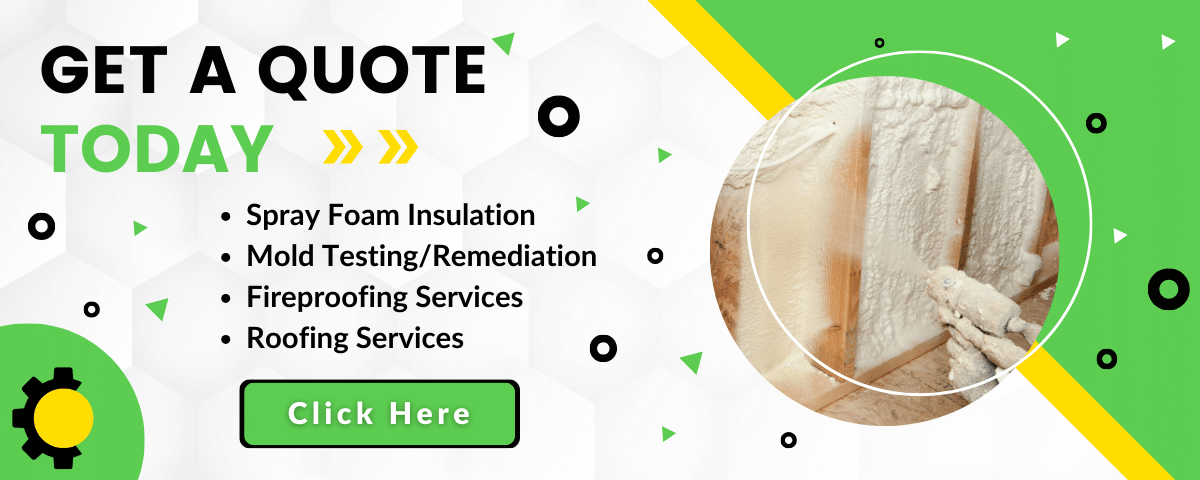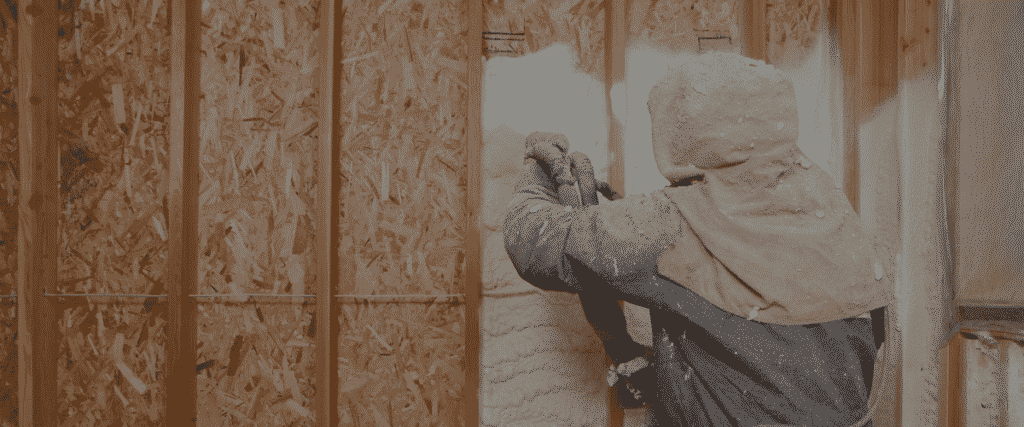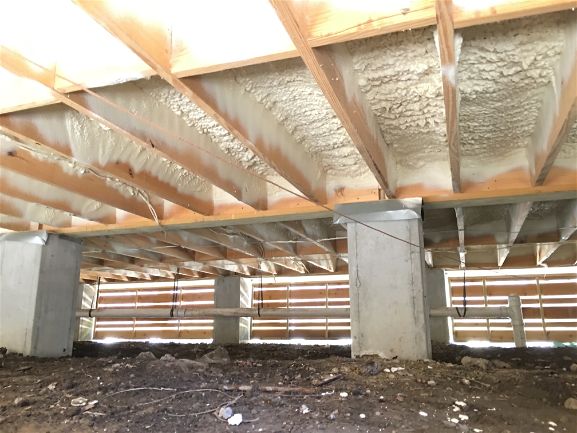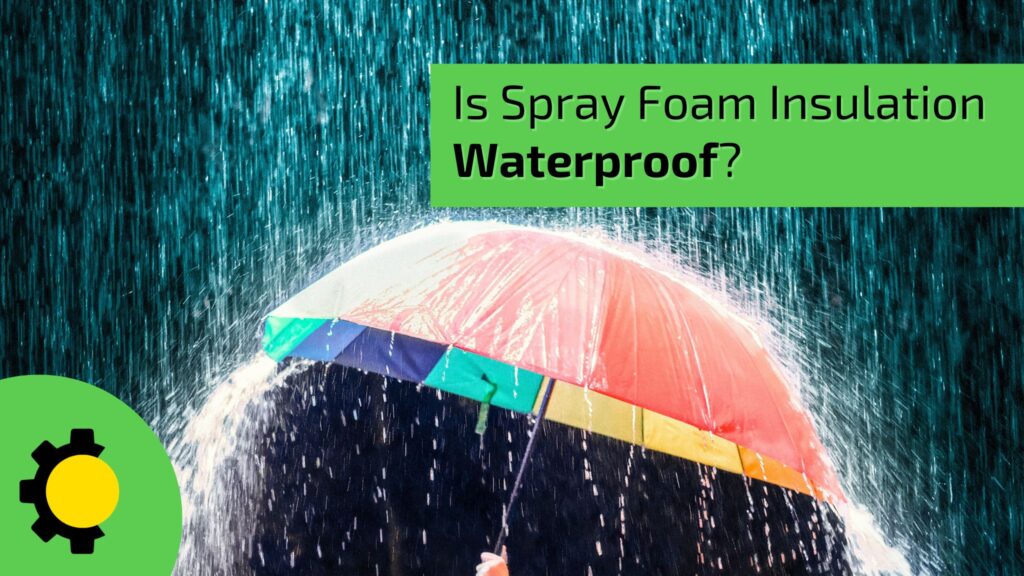Insulation is more than just a way to regulate your home’s temperature. Insulation material can also help keep your home dry. Many homeowners are looking for insulation that is resistant to moisture and can withstand temperature fluctuations without causing condensation or mildew. Spray foam is a popular material for insulation. But is spray foam insulation waterproof? The answer is in this guide.
Why is it important to use waterproof insulation in buildings?
You now know that spray foam insulation is waterproof. It’s time to answer another important question about spray foam. Do you actually need waterproof insulation in your home?
Every home is susceptible to damage caused by water. Mold and mildew can grow in the house, reducing the strength of the structure. According to an analysis by Statista in 2021, flash floods and other floods will cause over three billion dollars of damage to crops and property across the United States. Waterproof insulation can protect your home against moisture damage, while also improving energy efficiency.
Waterproof insulation reduces energy costs by preventing water from seeping into walls, gaps, or holes. Water conducts heat more efficiently than air. When it enters a building, this causes an increased energy consumption. Waterproof insulation can reduce energy consumption by preventing water entering the building.
The insulation itself can also be destroyed by water. Water replaces air in your insulation, which is providing better insulation to your home. Water conducts heat more efficiently than air, so damp insulation can allow warm air into or out of your house. Over time, water can cause insulation to degrade. Waterproof insulation is essential for a healthy, dry home and better energy efficiency.

Factors affecting the water resistance of spray foam insulation
Spray foam insulation provides reliable waterproofing for any building. Foam insulation provides an extra layer of protection against moisture. Spray foam insulation is water resistant, but there are other factors to consider.
Open cell foam vs. closed cell foam
When it comes to open-cell vs closed-cell spray foam, the closed-cell spray foam is better for waterproof insulation, as it is denser and has a tighter cell. Both spray foams are excellent for thermal insulation, but only the closed-cell foam is waterproof.
Thickness
Spray foam insulation’s water resistance is determined by the thickness of the insulation. The more insulation there is, the better the spray foam will be at resisting water seeping into the building.
Installation quality
Spray foam insulation is only as good as the installation. Spray foam can be affected by improper installation, which could affect its ability to resist water.
Gaps and voids
The spray foam is affected by holes, gaps, and voids. Water can enter the building via these gaps and voids. This reduces the effectiveness of spray foam insulation.
What are the benefits of waterproof spray foam insulation?
Every building must be protected against heat and excessive moisture throughout the year to ensure maximum comfort. Spray foam insulation provides the best protection against noise, moisture, and heat transfer. The following are some of the advantages of waterproof spray foam insulation:
Improved energy efficiency
Waterproof spray foam insulation increases energy efficiency by maintaining an even temperature in the building. Waterproof spray foam insulation also provides excellent thermal resistance, by sealing the holes, crevices, and gaps that can cause leaks and heat loss in buildings.
Durability increased
Spray foam insulation is more durable than any other method of insulation. Spray foam insulation does not shrink with time and is durable. Waterproof spray foam insulation helps to maintain the structural integrity. A roof that is insulated with waterproof foam will last much longer.
Eliminates condensation
Moisture buildup is the cause of condensation in buildings. Spray foam insulation that is waterproof helps eliminate condensation, which can lead to mildew and mildew growth. Spray foam insulation can be used to solve condensation issues in your home.

How to choose a waterproof insulation option
To begin with, you will need to choose between closed-cell and open-cell insulation spray foam. Let’s examine each option more closely to better understand which is the best insulation option for you.
Is open-cell spray foam insulation waterproof?
Open-cell spray foam insulation is less common than closed-cell. This type of insulation is used less frequently for several reasons.
- The open-cell version is not as effective at insulating as the closed-cell equivalent.
- Inability to be used as a supporting material because of its low density and lack of strength. It is even truer when extreme temperatures come into play.
- The lower R-value is the unit of measurement. It is used to measure how well a particular material resists heat flow.
Open-cell spray foam is not waterproof due in part to its low density.
Is closed-cell spray foam insulation waterproof?
Closed-cell spray foam is the more dense, stronger and efficient of the two options. It also offers a higher level of material performance. Closed-cell spray foam insulation is more expensive than its open cell counterpart.
The price difference is not unjustified. Choosing closed-cell spray foam insulation has many benefits.
- The R-value is twice as high as the open-cell option, which makes it a highly effective way to insulate any type of building.
- It is stronger, resulting in a higher level of resistance to the elements.
Closed-cell spray foams are waterproof. It is therefore easier to use closed-cell spray foam for controlled insulation, no matter how cold or hot the weather outside may be.

How can I ensure a proper installation of waterproof spray foam insulation?
Installation of waterproof spray foam insulation must be done correctly to ensure its effectiveness. Spray foam insulation is the best system to use for any building when installed correctly. It can get messy if not installed properly. You can ensure that waterproof spray foam insulation is installed correctly by following the guidelines below:
Hire a professional
You need to hire a professional spray foam contractor to get the most out of the expanding foam insulation. You can do foam insulation yourself. Professionals are equipped with the right equipment and have received training to ensure a successful installation.
Prepare the surface
Make sure that the surface is clean and dry before installing the waterproof spray foam insulation. Before applying the insulation, it is important to remove debris, dust and moisture.
How to apply insulation
Fill all holes and gaps when installing waterproof spray foam. Spray foam must also cure properly in order to prevent toxins from being released.
Ensure proper ventilation
Installing waterproof spray foam is not possible without proper ventilation. This will protect you from harmful chemicals. Proper ventilation also prevents moisture from accumulating in the building, which can lead to the growth of mildew.
Check the insulation
The next step after installation is to check the insulation and make sure that the spray foam was applied correctly.
Maintain the insulation
To ensure that insulation remains effective over time, it is important to maintain it properly. Regularly inspect and repair or replace any damages or deterioration.
Spray foam insulation is a great way to protect your home
The type of spray foam insulation you choose will determine whether or not your spray foam is watertight. Closed-cell spray insulation is the best choice if you want waterproof spray foam.

